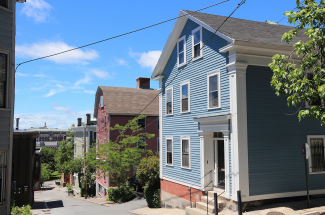Lead Poisoning Information For Tenants
All tenants have a right to safe, healthy, and clean housing. Landlords are required to protect tenants from exposure to lead. Landlords must correct known lead hazards on their properties, get a Certificate of Lead Conformance, and follow lead safe work practices for repairs. MORE LANDLORD INFORMATION Tenants are responsible for keeping their rental units clean and working with their landlords to address potential lead hazards.
Many things in or around your home can be a source of lead, such as drinking water or soil. Lead-based paint and dust found in homes built before 1978 is the most common source of lead in Rhode Island. Although lead poisoning can cause serious health problems, especially in children younger than six years old, it can be prevented.
What you should do
Find out if your location is lead-safe.
The Rhode Island Rental Registry Public Database is a valuable housing information source for renters, property owners, public health, and municipal officials. Specifically, people can search on a map, address, or parcel ID on the user-friendly site. Remember, lead exposure can slow a child's development and cause learning disabilities and behavior problems. Please note that if tenants do not find their residence while searching the database, they can report the missing property to rentalregistry@health.ri.gov.

Keep your rental unit clean
Cleaning regularly will help reduce your exposure to lead in paint, dust, and soil. Wipe your feet on a doormat or clean or remove shoes before entering your home to prevent tracking in soil that may contain lead.
Wet clean floors, stairs, and "friction areas" weekly. Friction areas are surfaces in your home where paint may be worn away by rubbing or friction, such as windows, stair treads, and sometimes doors and door frames. Paint in these areas can produce lead dust even if it is not peeling. Use a mop or sponge with warm water and a general all-purpose cleaner or a lead-specific cleaning agent. Thoroughly rinse sponges and mop heads after cleaning dusty or dirty areas.REVIEW BROCHURE ON LEAD AT HOME
Look for sources of lead in and around your rental unit
Lead can be found in many places in your home, such as in peeling and chipping lead paint, dust from lead paint, soil in your yard, tap water from lead pipes or lead solder, pottery, crystal, ceramic dishes, and toys.
Let your landlord know if you notice chipping or peeling paint in the interior of your home, or if you see damaged paint or bare soil on the property outside your home. Immediately wet clean any paint chips or dust.
Make sure your landlord hires licensed lead professionals
The Rhode Island Renovation, Repair, and Painting Rule requires the work to be performed by a licensed Lead Renovation Firm. If work performed by your landlord will disturb the same amount of paint, they must also be licensed as a Lead Renovation Firm and certified as a Lead Renovator.
Read educational materials and inspection reports from your landlord
When you sign your lease or before you move into your rental unit, your landlord will ask you to give you a copy of the Rhode Island version of the pamphlet Protect Your Family from Lead in Your Home and any reports or certifications that you have requested. You will be asked to sign a disclosure form stating you received these documents. You should receive:
- A copy of the most recent lead inspection report for your rental unit. This should have a current Certificate of Lead Conformance or Presumptive Compliance Certificate, current Conditional Lead-Safe Certificate, Full Lead-Safe Certificate, or Certification of Lead-Free Status. SEARCH FOR CERTIFICATES
If renovations, repairs, or painting are scheduled for your rental unit, the Lead Renovation Firm must give you a copy of the Rhode Island version of the EPA pamphlet Renovate Right. The firm will ask you to sign a form stating that you received a copy of this pamphlet.
Ask questions or file a complaint
If you do not find a lead certificate or if it has expired, ask your landlord to have your rental unit inspected again.
If you report lead hazards in or around your rental property, your landlord cannot retaliate by forcing you to leave your apartment or raise your rent.
If your landlord fails to meet requirements for disclosing and correcting lead hazards, you may file a complaint by calling your local code enforcement or the Rhode Island Office of Housing and Community Development.
Learn more about resources available to renters, including the Rhode Island Landlord Tenant Handbook.
